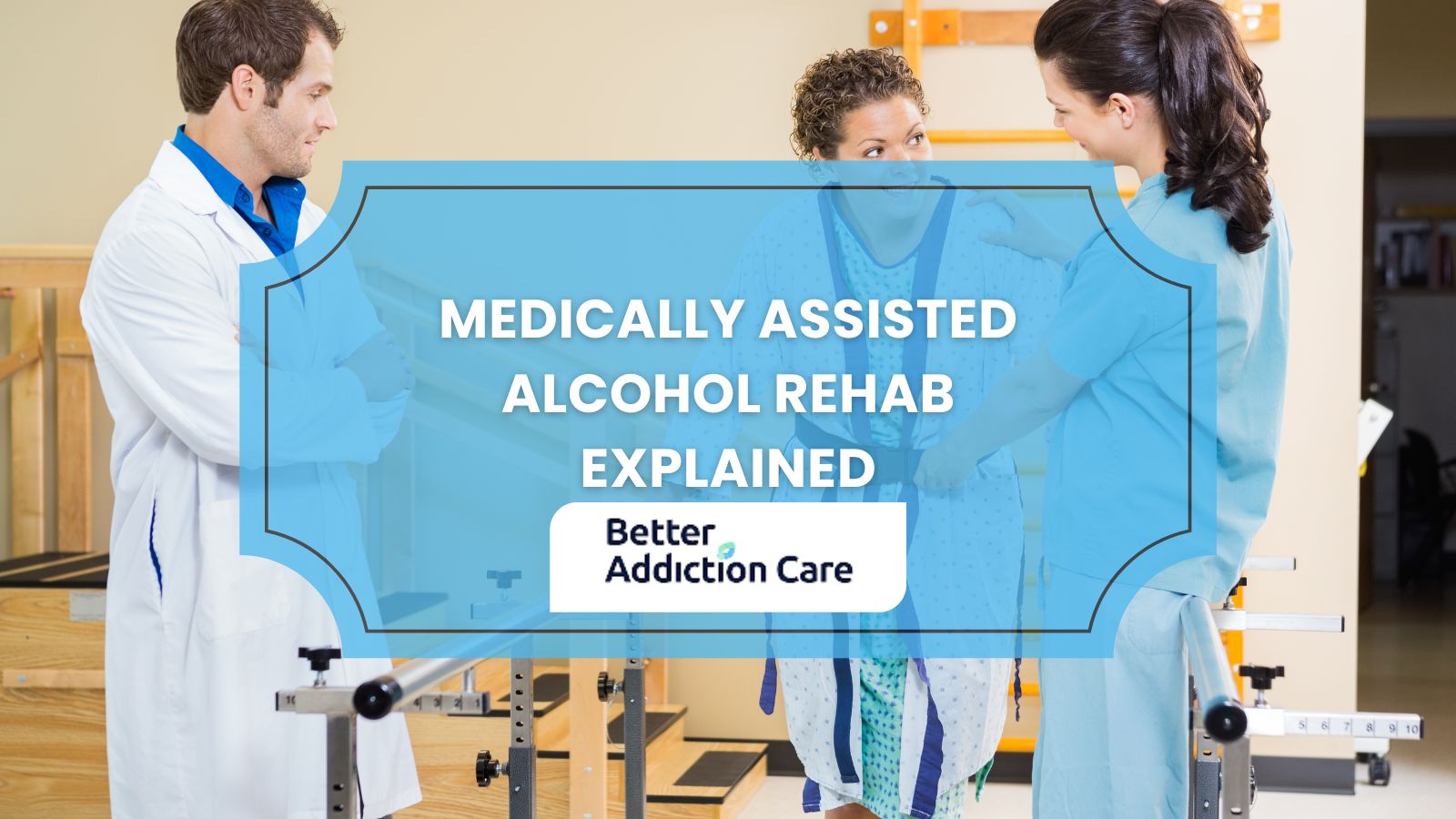A Guide to Understand How to Detox from Alcohol

Alcohol detoxification, often known as alcohol detox, is the process by which people abstain from alcohol while dealing with the physical and psychological symptoms of withdrawal. Because the intensity of withdrawal symptoms can range from minor discomfort to life-threatening consequences such as seizures and delirium tremens (DTs), this is usually done under medical care.
Detoxing from alcohol is very important when beginning treatment for Alcohol Use Disorder (AUD) since it helps eliminate the substance and its subproducts from the body while also addressing any issues that may arise during the process. The right detox program should aim to alleviate discomfort and prevent future occurrences.
Alcohol detox programs usually include multiple steps, such as thorough examinations, individualized detox plans, medicine to treat symptoms, and, ideally, ongoing medical supervision to avoid serious health problems or even death. The goal is to ensure a safe and successful treatment plan for alcohol detox and withdrawal, manage any potential adverse effects, provide pain relief, and put preventative measures in place. This post is a tutorial to help you learn how to detox from alcohol.
What are the Steps to Detox from Alcohol?
For a successful detox, you should follow a well-planned strategy to prevent withdrawal symptoms and reach recovery. Healthcare providers normally start this process with a comprehensive assessment of your mental and physical health, drinking history, and other health issues. This examination is used to develop a personalized detox plan. While the steps of alcohol detox may be comparable to those of other types of detox, such as drug detox, they require special care owing to the distinct withdrawal symptoms and hazards associated with alcoholism.
Inpatient treatment is ideal for alcohol detox due to the need for medical supervision. This enables ongoing monitoring by healthcare specialists to treat withdrawal symptoms and avoid consequences. Inpatient detox is chosen because it provides a structured setting and fast access to medical care in the event of severe symptoms or consequences.
Benzodiazepines are commonly used in medication-assisted treatment (MAT) to relieve withdrawal symptoms and avoid seizures. Proper hydration and nutritional support are very important since, in the withdrawal phase of the detox, you could develop hyperthermia. Other treatments are available for specific symptoms such as nausea, migraines, and anxiety.
Supportive care is an essential component of the detox process. Counseling and support groups are used to address the psychological aspects of addiction, as well as therapeutic activities such as exercise and stress-reduction strategies. To reduce withdrawal symptoms, a progressive reduction in alcohol consumption may be recommended rather than an abrupt halt.
Detox is just a tiny part of the treatment, so while detoxing, it is ideal to dig deep and get information about the root causes of the problem. During this process, you should get mental health support and also receive care for any co-occurring disorder, such as anxiety or depression, and employ behavioral treatment techniques, such as cognitive-behavioral therapy (CBT), to assist the patient in quitting drinking and learning coping mechanisms.
Your doctor should help you build a post-detox plan to ensure that your progress continues after detox. This typically entails continuing counseling, attending treatment facilities or support organizations such as Alcoholics Anonymous (AA), and cheering you up to make positive life changes, such as learning appropriate coping mechanisms for stress and eating a balanced diet.
Relapse prevention is a top focus. It involves learning about triggers and how to avoid them, as well as establishing a strong support network of family, friends, and groups. Remember, detox is merely the first stage in recovery from alcoholism. Long-term success typically demands extensive care and continual support. Always seek professional assistance to ensure a safe and effective detoxification procedure.
How Long Does It Take to Detox from Alcohol?
Various factors contribute to the duration of an alcohol detox, such as the extent of the addiction, the person's general well-being, and their previous detox experiences. Typically, the detox process is broken down into three phases: acute, sub-acute, and post-acute withdrawal phases.
The acute withdrawal period lasts between 6 hours and three days. The most severe symptoms typically appear between 6 to 12 hours following the last drink, peaking between 24 and 72 hours. Symptoms of this phase include anxiety, tremors, perspiration, nausea, vomiting, headaches, and insomnia. Individuals with severe cases may develop hallucinations, seizures, or delirium tremens (DTs), all of which are medical emergencies.
The subacute withdrawal period lasts from three days to a week. Symptoms normally start to fade within 48 to 72 hours, and many physical symptoms disappear by the end of the first week. Some psychological problems, such as anxiety, restlessness, and mood swings, could persist.
Post-Acute Withdrawal Syndrome (PAWS) may last several weeks or months. Some people experience long-term withdrawal symptoms, including mood swings, anxiety, low energy, disturbed sleep, and cognitive problems. These symptoms fluctuate but can be addressed with regular therapy and support.
Remember that while the intense detox phase might last up to a week, some symptoms may persist for weeks or months. Detox is best done under medical supervision to manage symptoms safely and efficiently and to establish a thorough treatment plan that supports long-term recovery.
How Can You Avoid Withdrawal Symptoms?
Avoiding withdrawal symptoms after stopping alcohol is challenging, but several strategies might help decrease them. Patients should detox under medical supervision, ideally in an inpatient setting, to ensure prompt treatment for severe symptoms and medication management. Benzodiazepines alleviate anxiety, convulsions, and withdrawal symptoms. Slowly cutting back on alcohol helps reduce withdrawal symptoms, but only under medical supervision.
Dehydration and malnutrition aggravate detox symptoms, so stay hydrated and fed. Psychological support from counseling, therapy, or support groups can help manage anxiety, sadness, and other symptoms. Providing a non-alcoholic, supportive environment reduces stress and anxiety.
Taking vitamins and minerals, especially B vitamins like thiamine, can help detox and prevent problems. Controlling symptoms with appropriate interventions, such as anti-nausea drugs for gastrointestinal distress and headache painkillers, can also help.
Finally, post-detox support and therapy are essential for dealing with alcoholism, regulating cravings, and avoiding relapse.
Where to Find the Right Detox Treatment for You?
Consult your primary care physician or an addiction expert to choose the best alcohol detox treatment for you. Look for accredited detox centers that satisfy high treatment standards, such as those accredited by the Commission on Accreditation of Rehabilitation Facilities. Determine whether inpatient or outpatient detox is best for you based on the severity of your addiction and any coexisting medical or psychiatric disorders.
Evaluate possible detox clinics' treatment programs to verify they provide complete care, such as medical management of withdrawal symptoms, counseling, and support services. Look for specialized treatments if necessary, and study feedback from previous patients to determine the quality of care. Discover the detox centers covered by your health insurance plan to assist with any out-of-pocket costs. Reach out to your insurance company for this information.
If feasible, visit the detox facilities to experience the surroundings and meet the staff. Select a conveniently situated facility, particularly for outpatient programs, to ensure a seamless dedication to the detox process. Ensure that the center provides referrals to rehabilitation programs, ongoing therapy, support groups, comprehensive aftercare planning, and assistance for a smooth transition to long-term recovery.





